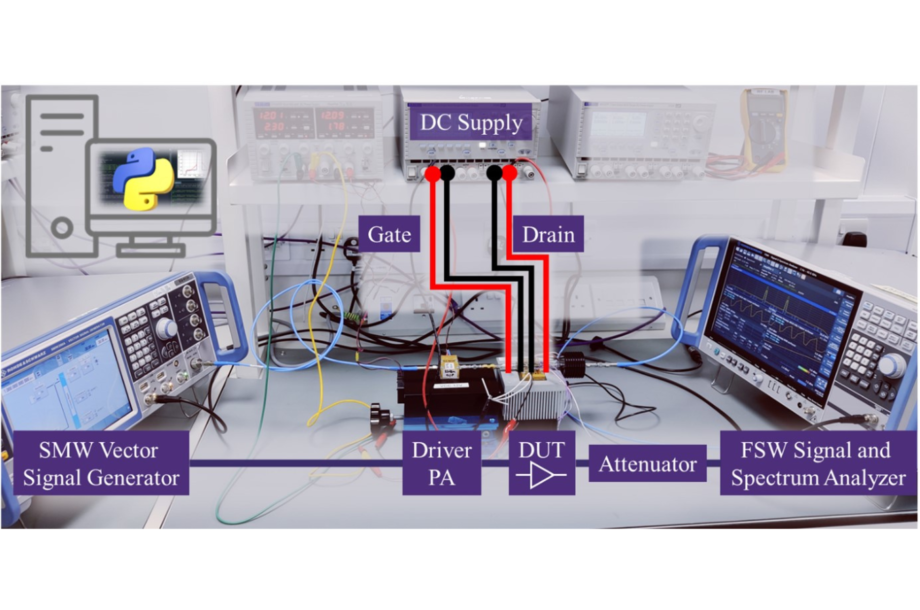
GaN power amplifiers could be used in data-intensive applications such as video streaming and the Internet of Things.
A high-performing gallium nitride (GaN) power amplifier for use in satellite communication applications has been developed by a collaboration including a team of engineers at the Compound Semiconductor Applications (CSA) Catapult and Cardiff University.
Presenting their results at the European Space Agency’s ‘1st Space Microwave Week’ conference, the team say the GaN power amplifier, a key part of a satellite device, has performed extremely well on new state-of-the-art linearity tests developed by CSA Catapult to help test the technology before it makes its way into real world-applications.
When designing satellite communication systems, one of the most critical factors is the linearity of the power amplifier, which describes the accuracy of reproducing the input signal that the amplifier is boosting.
A linear power amplifier preserves the information content and quality of the signal and reduces the interference with other signals in the same frequency band. This is crucial to reduce distortion and ensure that the signal’s information can be transmitted over the air and accurately recovered by a receiver.
The CSA Catapult team say this is an important step towards developing GaN power amplifiers for broadband satellite communication applications that are data-intensive, such as video streaming and the Internet of Things (IoT), as well as integration with the 5G mobile communication system and a pathway beyond 5G.
By using compound semiconductors such as GaN instead of silicon to build a power amplifier, more energy efficient systems can be built, and hardware size and weight can be reduced.
However, engineers are continuously wrestling with the challenge of creating an efficient and linear power amplifier, with the two factors often conflicting.
Being able to test the linearity of cutting-edge GaN power amplifiers with real data signals is therefore of upmost importance and is what led CSA Catapult and Cardiff University engineers to develop a state-of-the-art testbed that can carry out these important measurements automatically.
CSA Catapult tested and successfully characterised a GaN satellite communication power amplifier operating in the 26-31GHz band with an output power greater than six watts.
Ehsan Azad, a RF engineer at CSA Catapult who led the research and presented it at the ESA conference said: “With the increasing demand for high-speed and reliable communication, satellite communication systems are becoming more advanced and sophisticated.
“As these systems continuously evolve through increased bandwidths and more complex signals being transmitted, it becomes more challenging to maintain linearity specifications whilst continuing to focus on efficiency improvements.
“As we move toward the more energy-efficient power amplifier architectures, alongside the use of relatively new GaN technology, a lot of the assumptions made on power amplifier linearity are being invalidated.
“Similarly, there are still concerns about the linearity of the GaN-based power amplifier.
“That is why it is critically important that state-of-the-art tests such as ours are developed to determine the suitably of compound semiconductor materials for building the next generation of satellite communication applications.”
To find out more about how CSA Catapult is developing new satellite applications visit https://csa.catapult.org.uk/space/